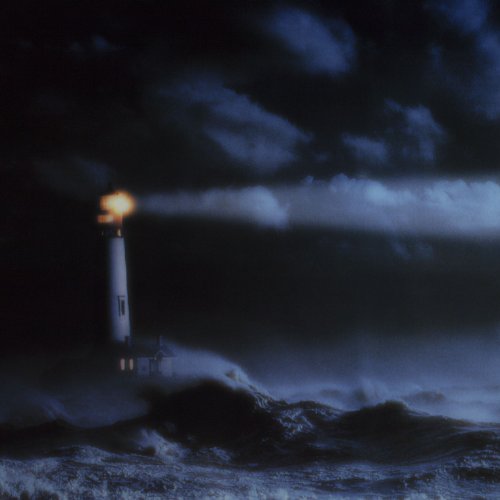
John Maus
We Must Become the Pitiless Censors of Ourselves
Release Date: Jun 28, 2011
Genre(s): Pop/Rock, Alternative/Indie Rock, Alternative Pop/Rock, Alternative Singer/Songwriter
Record label: Ribbon Records
Music Critic Score
How the Music Critic Score works
Buy We Must Become the Pitiless Censors of Ourselves from Amazon
Album Review: We Must Become the Pitiless Censors of Ourselves by John Maus
Excellent, Based on 9 Critics
Based on rating 5/5
Through no fault of his own, John Maus has become somewhat of a cult figure in the four years between his most current album and 2007’s Love Is Real. Fate and a certain fetishism for vintage synthesizers have conspired to place him at the nexus of a number of recent popular movements, including the bastard pseudo-genre of chillwave, minimal wave revivalism, and the weathered 90s R&B re-imaginings of artists like How To Dress Well and d’Eon. Thus, Maus is also implicated in the greater trend of hypnagogic pop, a characterization that he strongly refutes, as his music is less a product of memory or nostalgia and more a result of willful existence and acknowledgement of the value of “old synthesizers that can be mobilized today in interesting ways.
Based on rating 8.4/10
John Maus first gained notice while collaborating and playing with fellow Cal Arts classmate Ariel Pink more than 10 years ago. Though both have since developed cultish followings by releasing distinctive takes on murky lo-fi, Maus has steeped his music in new wave signifiers, an association furthered by his deep, commanding voice. Whether he's evoking Joy Division's Ian Curtis or Bauhaus' Peter Murphy, Maus opts to abstract the genre, inserting noise into unexpected places and walking the line between sincerity and surreality.
Based on rating 8/10
John Maus, a close friend of Ariel Pink, crafts pop music with a similar aesthetic. Washed-out vocals, hopscotching genres, and abrupt shifts in moods and tempos are the rule here, akin to riding a tilt-a-whirl while on hallucinogenic drugs. He also finds antecedents, both spiritual and sonic, in the likes of Xiu Xiu, Swans, and Arthur Russell throughout Pitiless Censors.
Based on rating 4/5
The early press about John Maus's third album suggested he'd made a leap into the unknown, to a place where all one's previous knowledge and beliefs about music were redundant. "Its atemporal feel and overall state of being – a queasy type of dyschromia – communicates eternity and infinity," wrote one reviewer. Which means the thoroughly servicable synthpop it actually offers, sung by a man whose baritone sounds uncannily like the Sisters of Mercy's Andrew Eldritch, might seem an anti-climax.
Based on rating 8/10
On his third album, John Maus continues his pursuit of immediacy-in-action mixed with a certain calm, developing a further tension that infuses both his music and words. The immediately cheery lead synth sparkle of the opening "Streetlight" contrasts with both the melancholic background tones and his heavily echoed singing, suggesting above all else an uneasy joy in the moment, as if everything were being celebrated under a microscope or through gun sights. For all the '80s-redux claims often pushed in his direction, Maus' looming dread is much different from the nuke/AIDS paranoia of the time -- there's a sense of a new kind of rage against a dying of the light, a reaction against entropy.
Based on rating 8/10
Like pal Ariel Pink’s Before Today, John Maus’ We Must Become the Pitiless Censors of Ourselves is steeped in ‘80’s magic. Unlike Before Today, Maus’ third release is less moody, more consistent in its sense of oddness and intrigue. We Must Become… is also consistent in that nearly every track manages to top what came before it. The awkward disco of opener “Streetlights” sounds like the catchiest song in ages, only to be replaced by the electronic freak-out that introduces “Quantum Leap” slightly less than three minutes later.
Based on rating B
With 2006’s Songs and 2007’s Love is Real, John Maus broke out of the collaborative clay of Ariel Pink, but retained his shape-shifting quality. With his solo records, especially his latest LP, We Must Become The Pitiless Censors Of Ourselves, he has incorporated some New Wave signposts, with a little melancholy disco, constantly refining what might be the right kind of landscape for his deeply yearning, compelling vocal. In some ways his closest reference point is probably Arthur Russell who went from the strains of mournful cello on Love Has Overtaken Me to helping create the sound of New York’s disco underground, and there is some of that fearless creativity within Maus, also sharing a classical sensibility amidst excitement about the possibilities presented within electronic music.
Based on rating 3/5
For the quintessential music nerd, John Maus is prime underground-idol material. He's a political philosophy professor with a love of existential pop, an icy Ian Curtisesque baritone and an impassioned stage presence. In contrast to his shrieking live show, his recordings are introverted, muffled and moody. On his third full-length, he buries unintelligibly reverbed vocals beneath a feverish atmosphere of romantic analog synth-pop.
Opinion: Excellent
Maus has given his skewed, 80s-inspired synth-pop some almighty new hooks. Chris Parkin 2011 He’s a clever man, John Maus. The Minnesotan’s intellectual arsenal includes degrees in music and philosophy, and he recorded this third album while taking a PhD in Political Science. He’s as much a professional existentialist as he is a synth-pop musician – sorry, composer – and reading his interviews can make your cerebral cortex pulse with befuddlement.
'We Must Become the Pitiless Censors of Ourselves'
is available now

